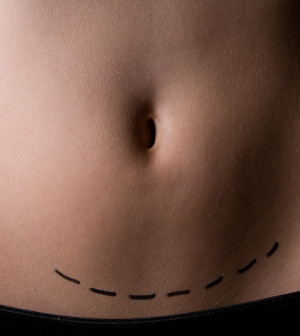- The Best Time of Day to Drink Bone Broth to Maximize Health Benefits
- 8 Ways to Increase Dopamine Naturally
- 7 Best Breads for Maintaining Stable Blood Sugar
- Gelatin vs. Collagen: Which is Best for Skin, Nails, and Joints?
- The Long-Term Effects of Daily Turmeric Supplements on Liver Health
- Could Your Grocery Store Meat Be Causing Recurring UTIs?
- Are You Making This Expensive Thermostat Error This Winter?
- Recognizing the Signs of Hypothyroidism
- 10 Strategies to Overcome Insomnia
- Could Artificial Sweeteners Be Aging the Brain Faster?
Seat Belts, Air Bags May Save Your Kidneys


Air bags and seat belts help protect the kidneys from damage during car accidents, new research shows.
“Motor vehicle accidents can cause a variety of serious personal injuries, including high-grade renal [kidney] trauma,” Dr. Jack McAninch, a professor of urology at the University of California, San Francisco, said in a news release from the American Urological Association.
Researchers from Advocate Illinois Medical Center, Baylor College and New York University reached their conclusions after examining car accident statistics in the United States from 2010 to 2011.
There were nearly 300,000 car accidents, according to the researchers. In those accidents, almost 2,600 kidney injuries occurred.
People who used air bags and seat belts together were about 23 percent less likely to suffer from severe kidney injuries, and their rates of nephrectomy — surgical removal of a kidney — fell by more than half.
However, injured people who only wore a seat belt or used an air bag — and not both — weren’t that much less likely to suffer a severe kidney injury.
People who don’t use seat belts and who don’t have air bags in their car were 44 percent more likely to suffer a serious kidney injury during a car accident, according to the study.
“These data clearly demonstrate occupants who wear seat belts and whose air bags deploy during an accident have less of a chance of suffering high-grade renal injury or the need for a nephrectomy as compared to those who do not wear a seat belt or have an air bag,” said McAninch. “This knowledge can support the many public awareness campaigns regarding the pros and cons to wearing seat belts.”
The study is to be presented Friday at the annual scientific sessions of the American Urological Association in Orlando. Findings presented at meetings are considered preliminary until published in a peer-reviewed journal.
More information
For more about motor vehicle safety, visit the U.S. National Library of Medicine.
Source: HealthDay
Copyright © 2026 HealthDay. All rights reserved.










